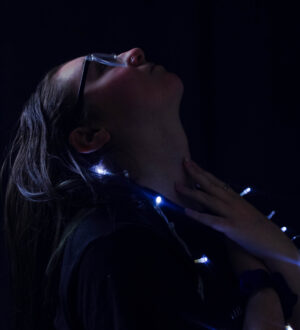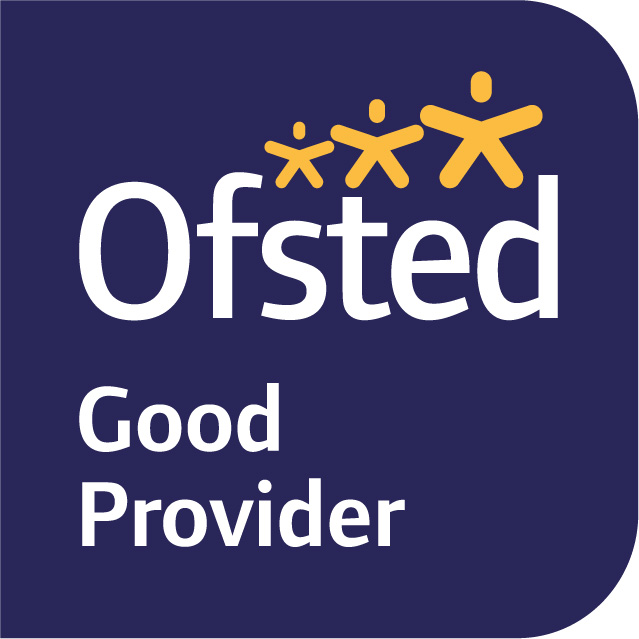This website uses cookies so that we can provide you with the best user experience possible. Cookie information is stored in your browser and performs functions such as recognising you when you return to our website and helping our team to understand which sections of the website you find most interesting and useful.
Step Up to Foundation Learning, Skills for Learning, Work & Life
Step-Up
Check out the available courses at the bottom of this page!
Our Step Up programme is based around practical skills and tasks that place an emphasis on learners demonstrating what they can do rather than what they know in theory.
Take a look at the Virtual tour of our campuses and facilities here.















Available courses
Entry Level Step Up to Independence
- Course type: Adults, 16-18
- Study Type: Full-time
- Study Duration: 36 weeks
- Level: Entry 3
- Campus: Buxton & Leek Campuses
- September start
-
Tell me about the course?
The pathway is aimed at 16 to 18 year olds [up to 24 with an EHCP] who wish two develop and progress their independent living & learning skills alongside English, maths and digital skills. IT is designed for students working between Entry Levels 1 – 2 (pre GCSE) and aimed at providing a set of core skills preparing students for the future and adult life.
The programme is built around developing independent personal / life skills as well as confidence and resilience. Providing an environment which is structured and secure whilst allowing students to stretch their independent learning and personal skills, promoting preparing for adulthood and encouraging them to embrace adult life.
Step Up to Independence curriculum is based around SEND Preparing for Adulthood outcomes. Our curriculum mirrors Preparing for Adulthood agenda and is designed to meet the needs of individual students through practical learning activities that will enable them to increase their independence. The programme incorporates individual learning objectives that link to students Education, Health, and Care (EHC) plan outcomes and the Preparing for Adulthood curriculum. Enabling the student to realise their full potential for independence for some, this may be to assist in developing their progression onto independent living, others may continue to live with their families. Successful completion of the individualised learning journey will allow students to progress to other courses at the college, to develop new skills for greater independence and/or move towards gaining supported employment/voluntary work.
You will develop basic living skills for the future which may include, positive relationships, effective communication, the importance of teamwork, booking personal appointments, positive behaviours and communications, personal and workplace communications, travel training, and road safety.
Managing money and financial literacy -budgeting basics, the impact of interest, the importance of saving, keeping money safe. – to enable young people to manage their own budgeting and bank account.
Managing a home – cleaning skills, budgeting and prioritising spending, using a vacuum cleaner, making tea / coffee, cooking five basic meals. This is to support each individual to manage their own room or home to a satisfactory standard.
Personal growth, awareness and problem solving -self-reflection, identifying a problem, developing possible solutions and selecting the best one – developing each individual taking control of their emotions and behaviours developing a clear understanding of themselves, identify their own strengths, areas for progression and problem solve accordingly.
Emergency planning -emergency first aid and how to prepare for emergencies and develop students safety awareness and how to mitigate damage of potential events.
-
What qualifications will I get?
Entry 3 and /or RARPA depending on current entry requirements.
Personal and Social development skills City & Guilds qualification. Plus, additional college qualifications in independence and life skills.
-
What can I go onto next?
Step up to Employment and life skills.
-
How will I be assessed?
Buxton & Leek College will support you in achieving the absolute best of your ability. To support this process, we offer both learning and personal support by specialist staff tailored to meet your specific needs. You will complete a portfolio of work which will be assessed, and you may have the opportunity to achieve nationally accredited qualifications or to develop specific individual targets through our College Certificate. You will also be assessed on your progress through a range of methods including speaking, listening, reading, writing, project-based learning, video, and photographic evidence.
-
Entry requirements
No formal entry requirements are required.
All students are considered on an individual basis and matched to a course that is best placed to meet their needs supporting their outcomes and their personal aspirations.
Entry Level Step Up to Work & Life Skills
- Course type: 16-18, Adults
- Study Type: Full-time
- Study Duration: 36 weeks
- Level: Entry 3
- Campus: Buxton, Leek
- Start date: September
-
Tell me about the course
Step Up to Employment and life skills is aimed for 16 – 18 year-old [up to 24 with an EHCP] or those progressing from Step Up to Independence, who wish to increase their work, learning and life skills with a view to continue studies on to a vocational programme, supported internship, traineeship or into employment. The programme will introduce students who may face barriers in education and employment whose talents often go undiscovered to the concept of employment and life skills, supporting the progression of students into the world of work and adulthood.
-
What qualifications will I get?
Employability and Life skills City & Guilds qualification. Plus, additional college qualifications in employment and life skills.
The programme includes continual studies of digital, maths and English skills. The main body of the programme is made up of two separate pathways. Mapped out to specific learning outcomes, enabling students to develop skills, confidence and aspirations needed for a successful future career. The person-centred pathways consist of:
Pathway 1- qualification in employability.
Pathway 2 – College certificate – Recognising and recording progress and achievement [RARPA].
RARPA is a means of measuring student progress and demonstrating outcomes, allowing the programme to be tailored to each students needs to support time in achieving a good work and life outcome. The programme focuses on supporting students to identify their key strengths and reflect on not just work skills but personality and interests to support their future career goals. As well as focusing on areas such as working with others, problem solving, decision making, enterprise, and meeting deadlines. Independent life skills could include confidence building, communication skills, self-awareness and assessment, reacting positively to change, travel training and the world around us.
Students will participate in enterprise activities allowing them to build on their current transferable world of learning and work skills. Boosting their CV by taking part in work experience with local employers, with the option of support within the workplace with a job coach. Students will participate in additional activities such as campaigns for fair trade, disability awareness and fundraising events. All students also get to take part in enrichment activities which include community projects such as tree planting, attending local sports provisions, British sign language, first aid and food hygiene.
-
What can I go onto next?
Further vocational studies, Traineeship, Supported Internship, or employment.
-
How will I be assessed?
Initial assessment will take place over several weeks or a period appropriate to the length of the learning need for each individual. Students’ strengths and areas for development will be identified through a variety of assessment methods establishing starting points to enable a person-centred approach. Students will complete a portfolio of work which will be assessed, and you may have the opportunity to achieve nationally accredited qualifications or to develop specific individual targets through our College Certificate. You will also be assessed on your progress through a range of methods including speaking, listening, reading, writing, project-based learning, video, and photographic evidence.
-
Entry requirements
No formal entry requirements are required.
All students are considered on an individual basis and matched to a course that is best placed to meet their needs and support their outcomes supporting each individual towards their aspirations.
Level 1 Step Up
- Course type: 16-18, Adults
- Study Type: Full-time
- Study Duration: 36 weeks
- Level: Level 1
- Campus: Buxton, Leek
- Start date: September
-
Tell me about the course
Step Up programme is aimed at 16 – 18-year-olds [up to 24 with an EHCP] and for those who wish to increase their key learning and development skills to boost progression opportunities and aid students in identify their future career pathway.
For those who may wish to explore further vocational career pathways, increase learning skills to support progression onto a chosen vocational pathway via further post 16 vocational studies, Traineeship, Apprenticeship or Supported Internship.
Step up will support in developing life and employability skills increasing confidence and independence in adulthood.
Step Up will support learners within their independence and responsibility for to support each individual in achieving greater independence in adult life, future employment, and progression to their preferred career pathway. Develop problem solving, resilience, independence, communication & social skills.
This programme includes continual studies in digital, maths and English skills, the main body of the programme is made up of two separate pathways. A qualification in Employability (level 1) and recognising and recording progress and achievement [RARPA]. RARPA is a means of measuring student progress and demonstrating outcomes, allowing the programme to be tailored to each individuals needs to support time in achieving a good life outcome. Step Up includes project-based learning (PBL), which is designed to provide students the opportunity to develop knowledge, skills and behaviours through engaging projects. PBL will support each individual in build key essential skills around challenges and problems they may face in the real world.
PBL is much more than just carrying out a task, students will investigate and respond to an authentic, engaging, complex problem or challenge with sustained attention. PBL prepares students to be self-sufficient, creative, and critical thinkers that can take on many challenges independently.
Step Up supports students into the world beyond the classroom, increasing intrinsic motivation and prepares them to accept and meet challenges in a way that mirrors what can be experienced in adulthood and the world of work. Step Up provides the opportunity for students learn while doing by engaging with tasks developing focus, retention and attitudes into education and learning.
Students will take part in work experience to boost their CV and develop their future employment skills. Students will participate in additional activities such as campaigns for fair trade, disability awareness and fundraising events. All students also get to take part in enrichment activities which include community projects such as tree planting, attending local sports provisions, tree planting, British sign language and food hygiene.
-
What qualifications will I get?
Level 1 Employability (plus additional individual qualifications such as first aid, food hygiene)
-
What can I go onto next?
Vocational programme / Supported Internship / Traineeship / Apprenticeship / Employment.
-
How will I be assessed?
Initial assessment will take place over several weeks or a period appropriate to the length of the learning need for each individual. Students’ strengths and areas for development will be identified through a variety of assessment methods establishing starting points to enable a person-centred approach. Students will complete a portfolio of work which will be assessed, and you may have the opportunity to achieve nationally accredited qualifications or to develop specific individual targets through our College Certificate. You will also be assessed on your progress through a range of methods including speaking, listening, reading, writing, project-based learning, video, and photographic evidence.
-
Entry requirements
No formal entry requirements are required.
All students are considered on an individual basis and matched to a course that is best placed to meet their needs and support their outcomes supporting students towards their aspirations.






